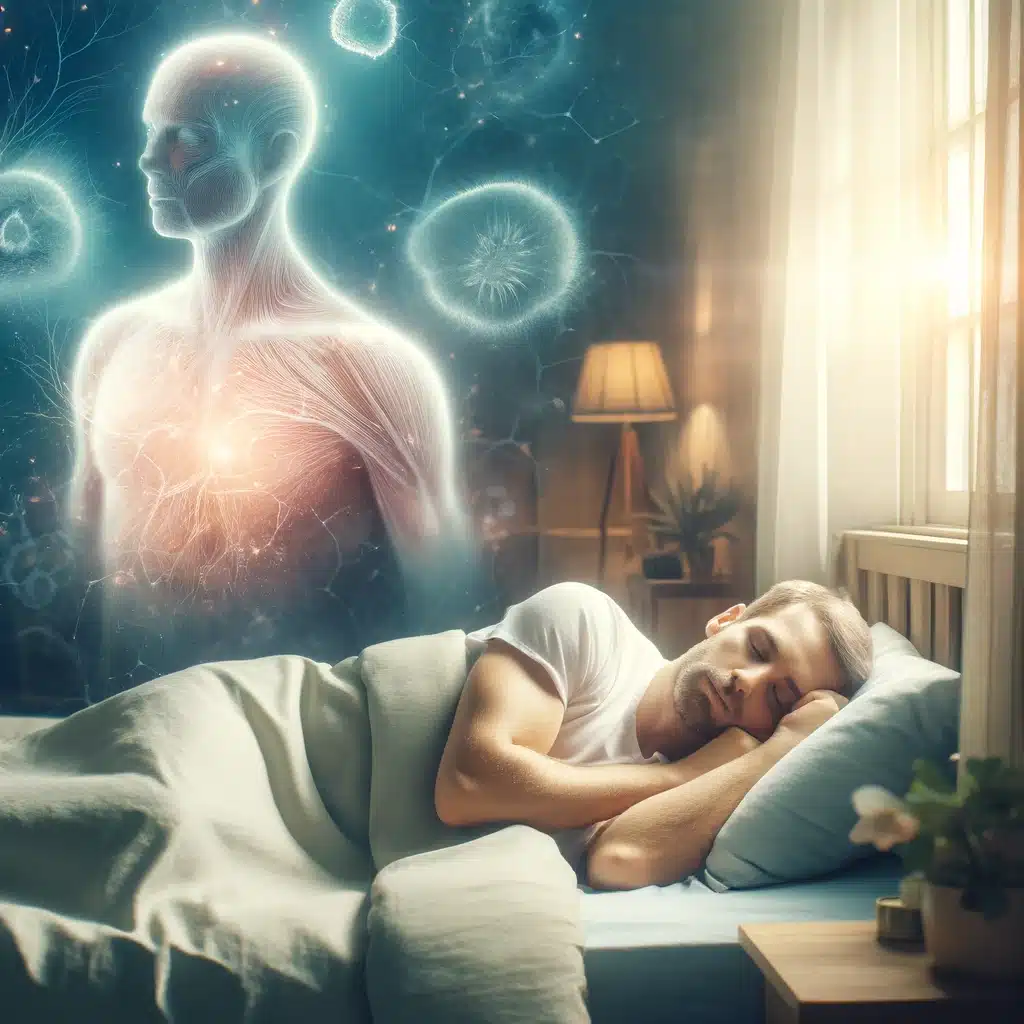For many individuals, the importance of sleep can often be underestimated. Sleep is the cornerstone of our body’s restorative ability. Did you know that we actually spend about a third of our lives sleeping or trying to sleep? That’s a significant amount of time, but what exactly are the effects of sleep on our bodies? This blog serves to provide a concise overview on the importance and benefits of sleep.
Physiological benefits of sleep
Sleeping plays a key role in the restorative function of the body by optimising the conservation and utilisation of energy during non-waking hours. While sleeping, energy is diverted to cellular maintenance, glucose metabolism, tissue repair and toxic waste removal from the brain. In this way, sleep improves memory recall, alleviates mental fatigue and reduces immune-inflammatory responses.
It also goes without saying that sleep also has a large influence on our mental health. Sleep has been closely associated with our body’s ability to cope with stress. Sleep deprivation alters the production of hormones which are crucial in helping our bodies respond to stressors. Better sleep in terms of both quality and quantity has been shown to be beneficial in mood regulation too.

Sleep and Pain
The relationship between sleep and pain is intricate and bidirectional. Both sleep disturbances and pain can have significant impacts on each other. Sleep deprivation can amplify the body’s perception of pain by disrupting the brain’s ability to process pain, it can also reduce our pain threshold and increase sensitivity to pain.
Chronic pain conditions such as arthritis and fibromyalgia can disrupt sleep patterns which could lead to insomnia. Likewise, fragmented sleep could also increase the risk of chronic pain in pain-free individuals. With that being said, which should we aim to improve – sleep or pain? There has been growing research showing that better sleep has a larger magnitude effect of improving pain than pain affecting sleep. Do not underestimate the power of a good night’s sleep on getting your pain levels under control!
Sleep and Injury
Sleep also helps to systematically reduce the risk of injuries by optimising recovery and training. During deep sleep, the body regulates hormone levels in our body; growth hormone in particular which is responsible for muscle tissue and bone building. Research has also shown that longer hours of deep sleep largely influences recovery. Proper sleep helps us to maintain neuromuscular function, enhancing our coordination and reaction-time during sports or exercise. Being well rested also improves our mental preparedness during sports which helps us make better informed decisions and risk judgement during play. This could be the determining factor of doing something silly during sports and getting injured! However, this doesn’t mean that sleeping well WILL DEFINITELY prevent injuries!

Sleep and Rehab
Sufficient sleep is essential for healing and recovery, especially during a duration of rehab. As mentioned above, tissue repair and physiological regeneration occurs during sleep. Sleep also helps us to moderate pain, which is needed during rehab. Additionally, sleep is also needed for cognitive functioning, which helps us to concentrate on our rehab exercises. Injury usually also results in temporary cessation of physical activity or sports; for many that would also mean time off from their social circles. A reduction in social interaction may cause mood or emotional challenges. While undergoing rehab, little do we know that our mental state is crucial during our recovery. Having adequate sleep allows us to reduce stress and anxiety levels, also making us more motivated to stick to our rehab protocols.
Conclusion
After having explained everything above, I hope you now know how important sleep is! Don’t be worried about having a couple of days of poor sleep, it’s part of being human! The key takeaway is why we should prioritize sleep for our overall health. Needless to say, if you are dealing with a medical condition that affects the quality and quantity of sleep, please do seek help from a licensed healthcare professional.
References
Charest, J., & Grandner, M. A. (2022). Sleep and athletic performance: Impacts on physical performance, mental performance, injury risk and recovery, and mental health. Sleep Medicine Clinics, 15(1), 41-57. https://doi.org/10.1016/j.jsmc.2019.11.005
Chennaoui, M., Vanneau, T., Trignol, A., Arnal, P., Gomez-Merino, D., Baudot, C., Perez, J., Pochettino, S., Eirale, C., & Chalabi, H. (2021). How does sleep help recovery from exercise-induced muscle injuries? Journal of Science and Medicine in Sport, 24(10), 982-987. https://doi.org/10.1016/j.jsams.2021.05.007
Generaal, E., Vogelzangs, N., Penninx, B. W., & Dekker, J. (2016). Insomnia, sleep duration, depressive symptoms, and the onset of chronic multisite musculoskeletal pain. Sleep, 40(1). https://doi.org/10.1093/sleep/zsw030
Nollet, M., Wisden, W., & Franks, N. P. (2020). Sleep deprivation and stress: A reciprocal relationship. Interface Focus, 10(3), 20190092. https://doi.org/10.1098/rsfs.2019.0092
Siengsukon, C. F., Al-dughmi, M., & Stevens, S. (2017). Sleep health promotion: Practical information for physical therapists. Physical Therapy, 97(8), 826-836. https://doi.org/10.1093/ptj/pzx057
Wei, Y., Blanken, T. F., & Van Someren, E. J. (2018). Insomnia really hurts: Effect of a bad night’s sleep on pain increases with insomnia severity. Frontiers in Psychiatry, 9, 377. https://doi.org/10.3389/fpsyt.2018.00377


